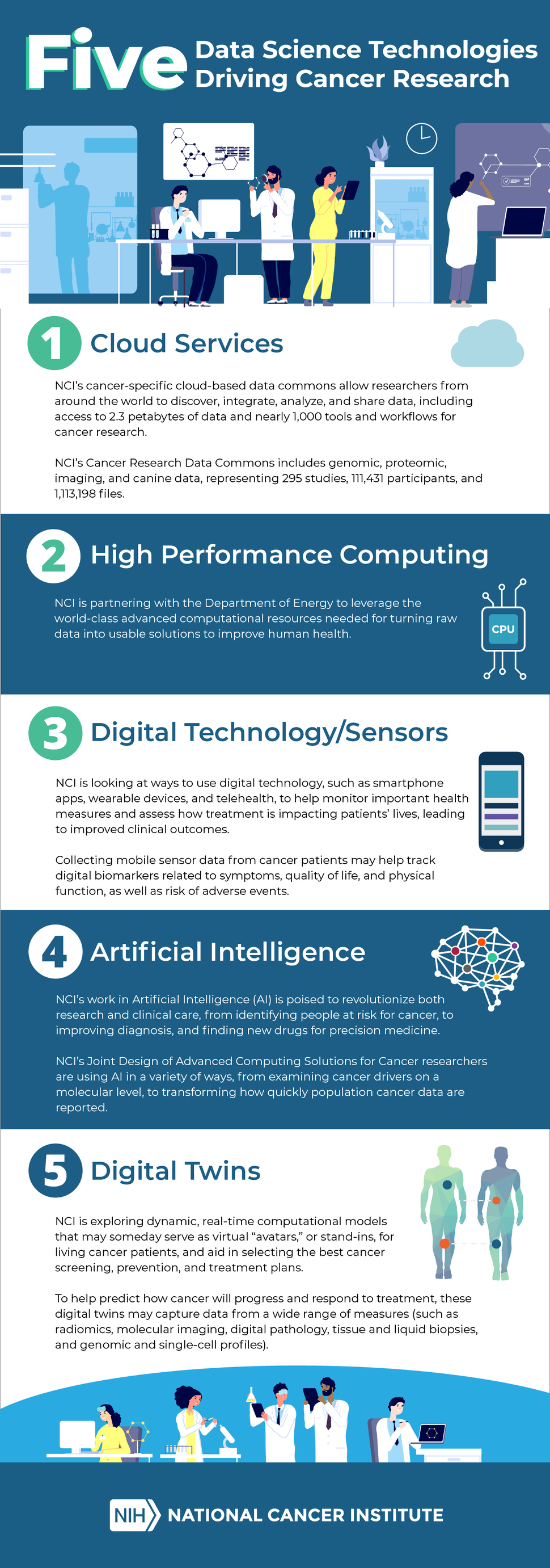Five Data Science Technologies Driving Cancer Research
To commemorate the National Cancer Act’s 50th anniversary, we’ve pulled together Five Data Science Technologies poised to make a difference in how cancer is diagnosed, treated, and prevented.
Scroll through the infographic below and see if you agree. Some tools are still in their infancy and not quite ready for prime time, whereas others already are revolutionizing research—helping to reveal the underpinnings of cancer and guiding highly tailored precision medicine for more effective treatments.
1. Cloud Services
NCI’s cancer-specific cloud-based data commons allow researchers from around the world to discover, integrate, analyze, and share data, including access to 2.3 petabytes of data and nearly 1,000 tools and workflows for cancer research.
NCI’s Cancer Research Data Commons includes genomic, proteomic, imaging, and canine data, representing 295 studies, 111,431 participants, and 1,113,198 files.
2. High Performance Computing
NCI is partnering with the Department of Energy to leverage world-class advanced computational resources needed for turning raw data into usable solutions to improve human health.
3. Digital Technology/Sensors
NCI is looking at ways to use digital technology, such as smartphone apps, wearable devices, and telehealth, to help monitor important health measures and assess how treatment is impacting patients’ lives, leading to improved clinical outcomes.
Collecting mobile sensor data from cancer patients may help track digital biomarkers related to symptoms, quality of life, and physical function, as well as risk of adverse events.
4. Artificial Intelligence
NCI’s work in Artificial Intelligence (AI) is poised to revolutionize both research and clinical care, from identifying people at risk for cancer, to improving diagnosis, and finding new drugs for precision medicine.
NCI’s Joint Design of Advanced Computing Solutions for Cancer researchers are using AI in a variety of ways, from examining cancer drivers on a molecular level, to transforming how quickly population cancer data are reported.
5. Digital Twins
NCI is exploring dynamic, real-time computational models that may someday serve as virtual “avatars,” or stand-ins, for living cancer patients, and aid in selecting the best cancer screening, prevention, and treatment plans.
To help predict how cancer will progress and respond to treatment, these digital twins may capture data from a wide range of measures (such as radiomics, molecular imaging, digital pathology, tissue and liquid biopsies, and genomic and single-cell profiles).
